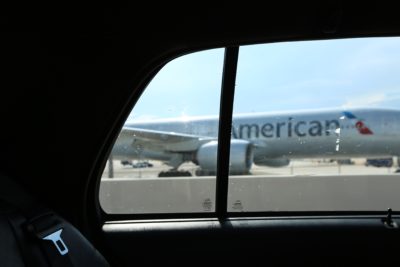
American, Delta revive their re-accommodation agreement
By cameron in Uncategorized
Delta and American airlines agreed to a new deal that will enable the airlines to rebook customers onto each other’s flights in the event of unexpected flight disruptions.
The new agreement went into effect Jan. 24.
American said its priority remains keeping customers on American or its alliance and joint business partners, but “this gives our team members another tool to re-accommodate customers.”
American said it was approached by Delta a few months ago about reviving its re-accommodation deal that was abandoned more than two years ago.
For many years, major airlines retained a relic of the regulated era: interline agreements that enabled airlines to re-accommodate another airline’s passengers in the event of an irregular operation. It was entirely voluntary; an airline could choose not to step in, but in a holdover from the more civilized time, they usually did, and were paid for it by the other airline.
In 2015, Delta Air Lines was feeling its oats. Its 2014 net income — $659 million — was not as stunning as the $10.54 billion net profit of the prior year, but it was still nothing to sneeze at.
Perhaps more stunning was the nearly 99% flight completion factor, second only to Alaska Airlines, which despite its name competes for the most part in a gentler climate.
Delta decided that since it was the most reliable big airline in the US, it should get more for its re-accommodation services.
United, which among the Big 3 had the most need of such services, caved into Delta’s demands.
 American did not, and in September of 2015, the old agreement was broken.(Southwest has never had such agreements. Until its conversion to the Amadeus Altea system, it lacked the technological capability.)
American did not, and in September of 2015, the old agreement was broken.(Southwest has never had such agreements. Until its conversion to the Amadeus Altea system, it lacked the technological capability.)
Since then, the major US airlines have been tried to their limits by hurricanes, forest fires, floods and mudslides. It’s hard to think of a natural disaster that has not hammered the US over the last two years. An excellent operational record has been no match for Mother Nature.
American emphasized that the new agreement is for irregular operations and/or airport use only. Travel agencies and others aren’t able to create an itinerary that includes an American segment and a Delta segment together.
Delta concurred that it is not an interline agreement, but rather a ticketing and baggage agreement designed for use to re-accommodate customers during irregular operations
![]()

